Salò, or the 120 Days of Sodom. One of the most controversial films in the history of cinema?
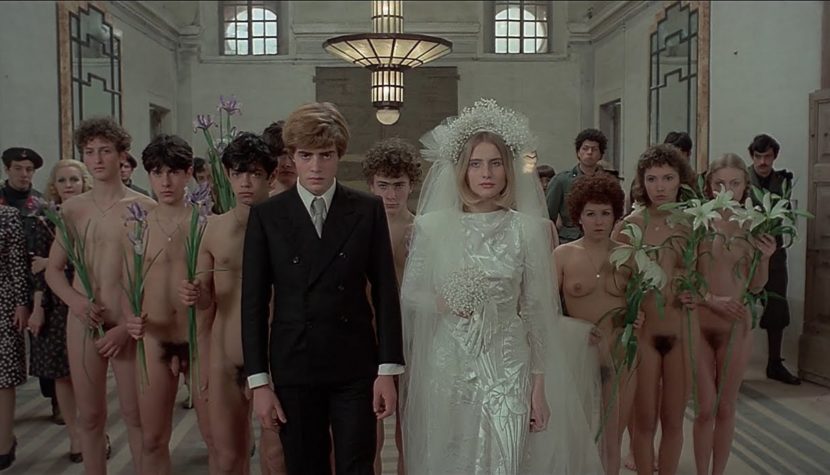
In countless rankings of the most disgusting and controversial films in the history of cinema, Salò, or the 120 Days of Sodom, the loose adaptation of de Sade’s magnum opus is at the top of the list. Whether this position is deserved, it is difficult to say.
Spasmodic vision
Nowadays, Pasolini’s spasmodic vision has somewhat lost its force. Undoubtedly, cinema remembers films that are crueler and more controversial, and definitely more vulgar and disgusting. In fact, even black as hell itself Internet virals can squeeze much more out of the topic of excrement than Pasolini managed to do in 1975 (whoever heard about two women and a certain cup knows what I’m talking about, I don’t encourage the unaware to look for it). The media presence of the macabre, which is not a work of fiction, has long exceeded the level of even the most subversive artists. 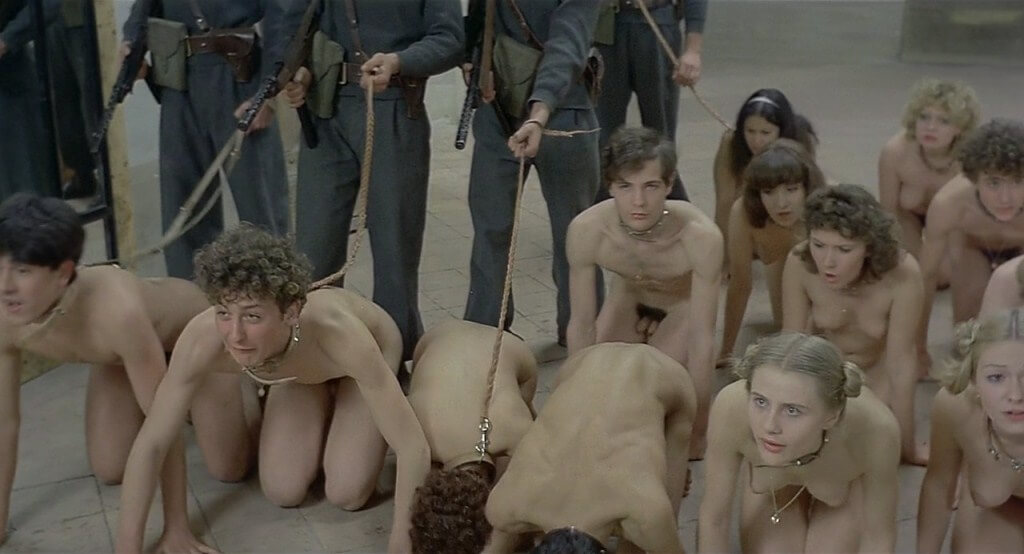
However, a combination of various circumstances led to the fact that Salò is today in the history of film in the place where most viewers looking for strong sensations find it. Somewhere among the titles from the forbidden index, between the Guinea Pig series, Italian mondo and stories about cannibals. The name of the most famous of the Marquess certainly contributed to the controversy and bad reputation, as did the mysterious death of Pasolini, who, according to the official version of events, was murdered during a tryst with a young man for hire. However, the main role in the creation of the myth was played by the censors who attacked Salò with the fury of a bull charging at a red rag. To this day, mainly on the occasion of subsequent re-releases of the film, the issues of deleted scenes and various editing interventions that would significantly tone down the aggression of the original material are discussed. The phenomenon of the film is evidenced by the fact that when one of the DVD editions, which was supposed to contain traces of deleted scenes (copyright issues), was withdrawn from sale, discs purchased in advance were sold on auction sites for as much as six hundred dollars. All to see rats trying to find their way through a young woman’s body.
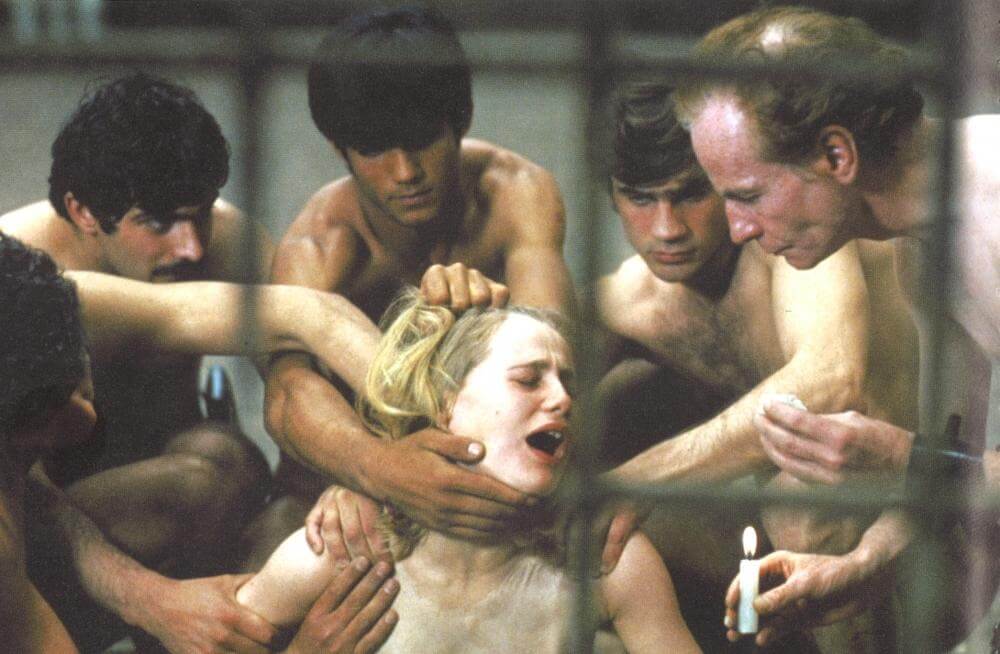
However, apart from all theories and tropes that turned Salò into a cinematic Minotaur wandering through a labyrinth of conjectures, understatements and fantasies of viewers fascinated by Pasolini’s swan song, this film simply does not deserve such attention. Even if we limit ourselves to the Italian market of the time, The 120 Days of Sodom was nothing special. Contestation, such as Bellocchio’s films (Fists in the Pocket, China is Near), has already hit the institution of the family, religion, bourgeoisie and political systems with great aggression. On the other hand, two years before the premiere, Salò Ferreri, together with his , spoke about orgies, death and feces. The variation on a de Sade theme was therefore not a lonely island of controversy. It worked perfectly, and it does, however, as an example of cinema that bury its philosophical aspirations under a thick layer of “sex, shit and blood”, which is what both Sade and Pasolini were wildly pleased with.
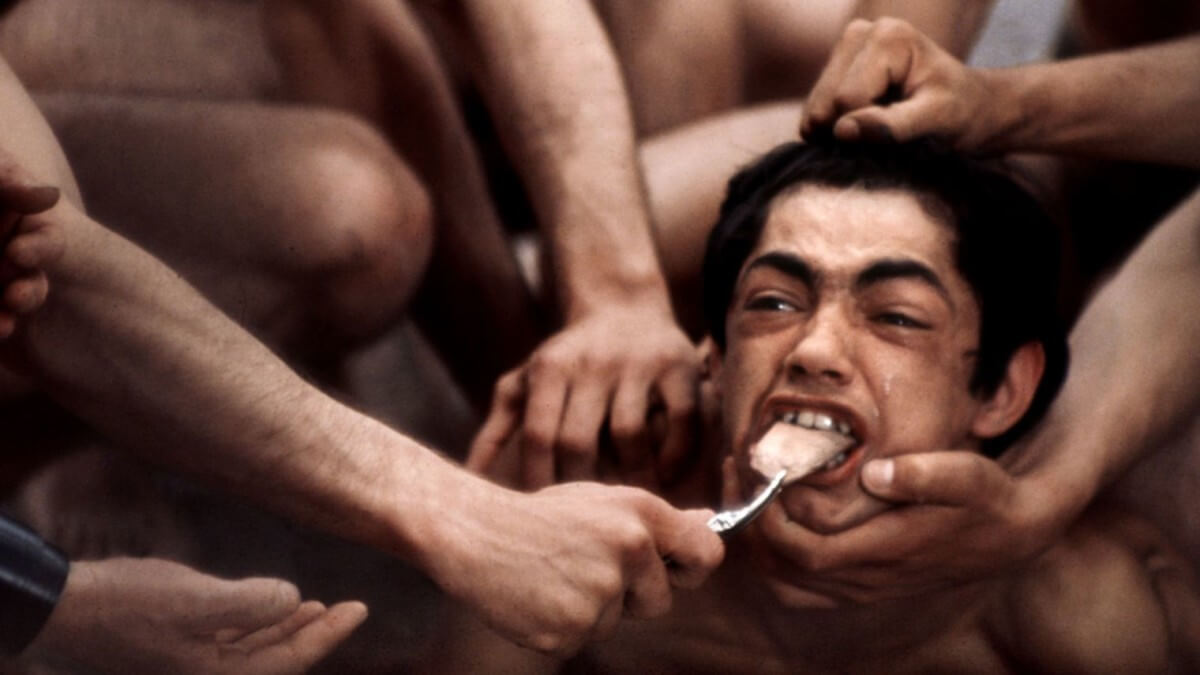
Long live the shackles!
The Italian artist cannot be denied erudition and intelligence. The very idea for the film sounds great, because can you fault the perverse juxtaposition of Mussolini’s fascist state and the micro-state established for one hundred and twenty days by de Sade and the libertines? On the one hand we have the cult of youth and beauty, on the other we have the clash of the fascist program of “moral hygiene” with the laws of property that is the place of the orgy and obscenity. Mussolini’s Italy forbade pornography, masturbation, prostitution, homosexuality, and most methods of contraception. The libertines from Pasolini’s film turn fascism on its head. We can still sing Giovinezza, because youth is most valuable, but the moral law is upside down. Deviations become imperatives, the norms developed by society are banned. Making us aware of the oppressive world of the libertines, Pasolini points out the shortcomings of the fascist system, which – in fact, is on a completely different side of the moral barricade – but is as extreme in its beliefs as the sick fantasies of the libertines.
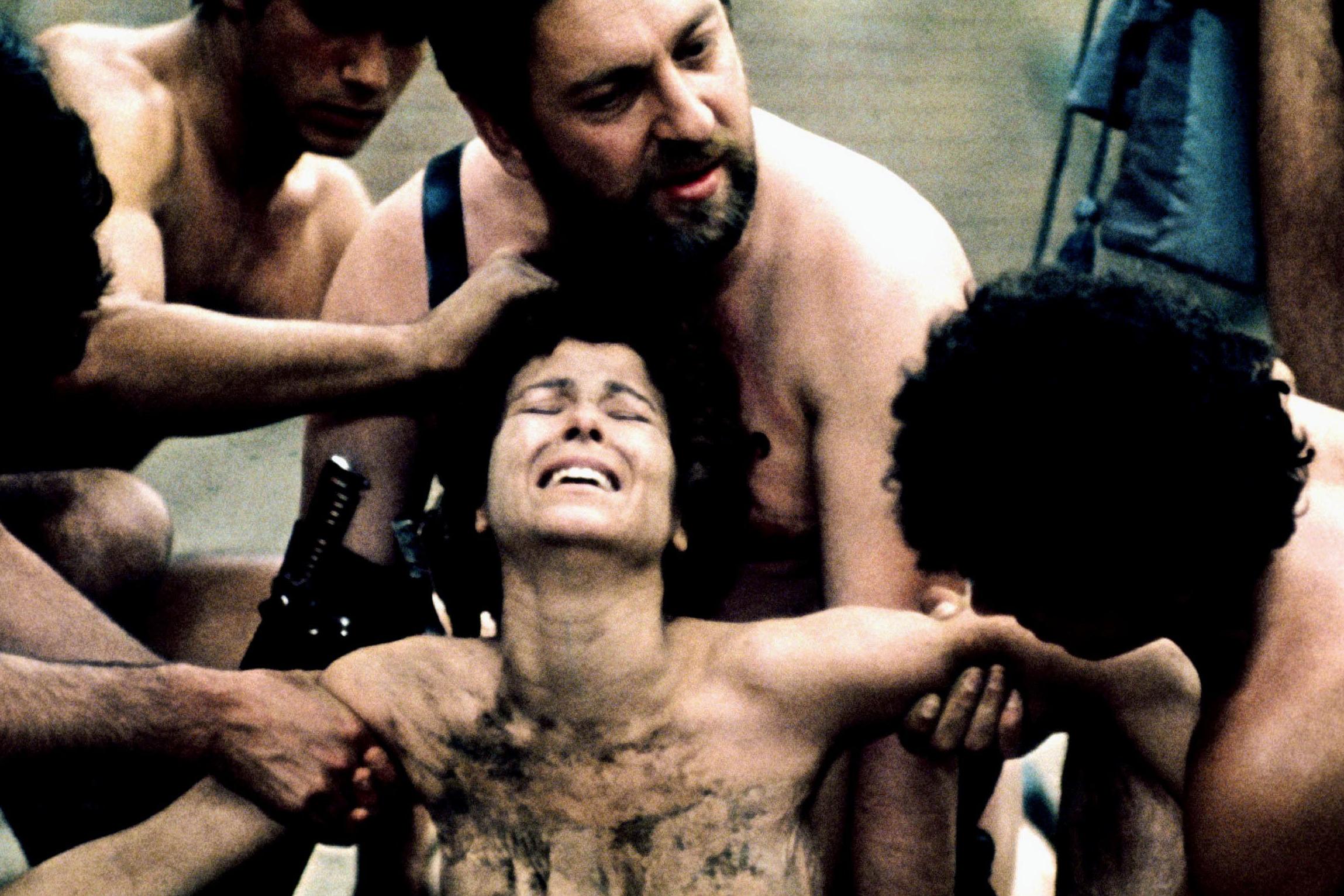
Pasolini cleverly uses a mechanism that Luis Buñuel commented on in his characteristic, ironic style a year earlier. His The Phantom of Liberty also presents the world upside down. In the name of liberation from the rules that inhibit the desires of the individual, everything is re-evaluated. However, the finale of the film leaves no illusions as to the fact that the apparent liberation is only a change in the system of bans and orders. The Phantom of Liberty is held together by the cry “long live the shackles”. Initially, it can be treated as another absurd Spanish joke, but when we hear it again, we will understand that there is nothing to laugh about. The libertines of Salò fall into a similar trap and become their slaves in pursuit of their desires. Unfettered freedom is still missing, only the shackles have changed.
Pasolini, speaking of de Sad in the language of post-structuralists, thus struggles with the issue of the individual’s right to freedom. It is a pity that the meaning of his reflections is lost among successive scenes of humiliation and vulgar and silly stories of elderly prostitutes. This film only touches on the topics mentioned above in a subtle way. There is simply no room for a deeper analysis of the problem, because it is wasted on the useless multiplication of subsequent horrors, which, yes, could shock, but nothing more.
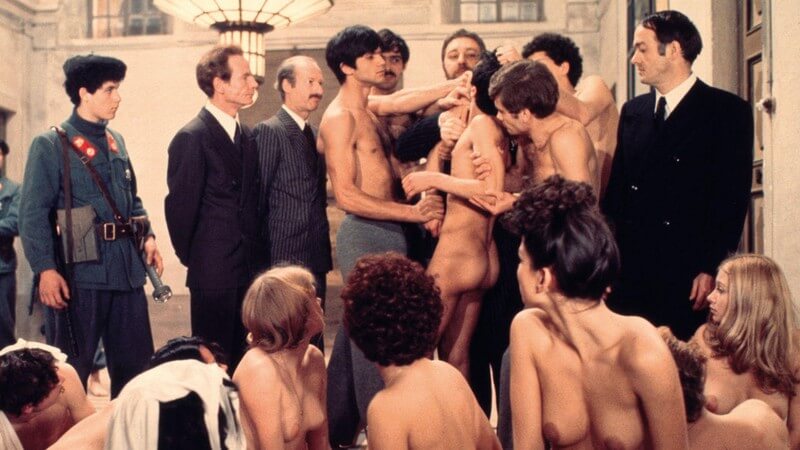
The late period of the Italian’s work was perfectly summed up by the irreplaceable Jerzy Płażewski, who noted that “in the search for the formula of a mass spectacle, Pasolini’s meditations on the main ideological disputes of the era got lost.” Nothing more nothing less.
In the case of Salò Pasolini, an intellectual and thinker dies crushed by the demons of his own imagination. The same thing happened once to de Sade, who wrote his manuscript between the dank walls of the Bastille.

